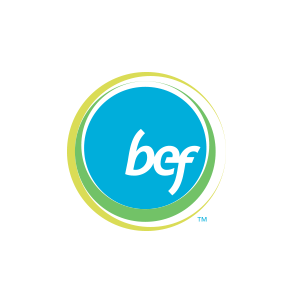BEF Carbon Credit Portfolio
Forest Conservation and Restoration
Invest in natural climate solutions like sustainable forest management and peatland conservation projects from across the globe.
Verification*
Supporting Alaskan Tribal Nations through carbon credit revenue
From beaches to high elevation terrain, the Kootznoowoo Project protects 20,159 acres across Prince of Wales Island, Alaska. 8,000 acres of the project include rare, old-growth forest. The project is owned by the native Haida and Tlingit people and managed in partnership with the U.S. Forest Service. The carbon revenue supports the native population of about 500 living in the village of Andoon through job and scholarship opportunities.
Registry ID: ACR499
Perpetual protection of sustainable working forests in valuable hardwoods forests of Minnesota
Using Smart Forestry practices, the Blandin Forestry project helps mitigate climate change and maintains the diversity of natural forest communities by reducing harvest impacts. These Improved Forest Management (IFM) practices promote ecologically sustainable production in a manner that is compatible with managing water quality and natural habitats for fish, wildlife and plantlife to ensure the vitality of the forests.
Registry ID: ACR212
Embracing the beauty of the Pacific Northwest while capturing carbon, protecting watersheds and threatened species
Nestled in the conifer forests of SW Washington, this 13,393 acre project brings together a diverse group of stakeholders committed to maintaining forest CO2 stocks through sustainable management. In addition to carbon sequestration, the project also increases forest health, fire and climate resilience, jobs and economic growth, and preserves exceptional wildlife habitat.
Project ID: ACR616
Energy Projects
Reducing our energy and replacing our energy sources with clean options provides big climate impacts, energy resilience and lowered costs to power our communities.
Verification*
Helping Argentina reach its wind energy potential
Despite Argentina’s great wind potential, wind power generation projects so far represent only a small share of the country’s electricity portfolio, making the Manantiales Behr wind farm an important renewable and clean non-conventional alternative for electricity generation and a valuable contribution to the diversification of the Argentine energy matrix.
Registry ID: VCS1820
Bringing economic development to a poverty-stricken region
The construction and operation of this large-scale wind power plant created more than 200 jobs, which helps spur economic development and alleviate poverty in Ningxia, one of the poorest regions in China. The construction of a road for the project also benefits the local community by allowing farmers to transport goods more easily from the rural, mountainous area into the city.
Registry ID: VCS1867
Waste
Reduce harmful greenhouse gases emitting from our waste streams.
Verification*
Taking out the greenhouse gas trash with landfill combustion
Methane has more than 80 times the climate warming impacts over carbon dioxide. By collecting and combusting methane, the Rio Grande Valley landfill gas project reduces greenhouse gases and improves local air quality. This project meets the criteria for the Core Carbon Principles and has been approved by the Integrity Council for the Voluntary Carbon Market.
Registry ID: CAR512
Taking out the greenhouse gas trash with landfill combustion
Methane has more than 80 times the climate warming impacts over carbon dioxide. By collecting and combusting methane, this Oklahoma landfill gas project reduces greenhouse gases and improves local air quality. This project meets the criteria for the Core Carbon Principles and has been approved by the Integrity Council for the Voluntary Carbon Market.
Registry ID: CAR515
Taking out the greenhouse gas trash with landfill combustion
Methane is a greenhouse gas that is 25 to 86 times more potent than carbon dioxide and is also considered a short-lived climate pollutant. The collection and combustion of landfill gas improves local air quality and is an effective method for decreasing the GHG emissions from landfills that would have otherwise been vented to the atmosphere.
This project meets the criteria for the Core Carbon Principles and has been approved by the Integrity Council for the Voluntary Carbon Market.
Registry ID: VCS4138
Recovery of used refrigerants from Fire Suppression Systems
Refrigerants have transformed our society by providing ways to store and preserve food, medicine and other vital products. However, HFCs (hydrofluorocarbons) are some of the most potent greenhouse gases on the planet – hundreds of times more powerful than carbon dioxide. The recovery of these HFC’s reduces the production and release of virgin HFC’s into the atmosphere and the greenhouse gas reductions are permanent.
Registry ID: ACR774
Building a more sustainable future through the circular economy approach to the lifecycle management of refrigerant gases
Refrigerants have transformed our society by providing ways to store and preserve food, medicine and other vital products. However, HFCs (hydrofluorocarbons) are some of the most potent greenhouse gases on the planet – hundreds of times more powerful than carbon dioxide. The recovery of these HFC’s reduces the production and release of virgin HFC’s into the atmosphere and the greenhouse gas reductions are permanent.
Registry ID: ACR869
Stacked Carbon Credits
As a nonprofit provider of carbon credits, a portion of earned revenue from credits supports our many mission-based programs. By selecting a Stacked Carbon Credit, you get to designate which specific program a portion of the revenue will go toward, and stack the benefits of beyond value chain carbon mitigation with program impacts.
Verification*
Preparing the next generation of leaders for a clean energy future
CE is a national clean energy, career connected education program. Together with schools, educators and industry, we strive to build a clean energy future to ensure that our communities and the environment are thriving and resilient. We work to expand access to opportunities for all students regardless of their geography, gender, ethnicity, or socioeconomic status.
Building community, resilience, and energy independence on indigenous lands
Support tribal renewable energy projects through your carbon offset purchase. Tribal renewable energy programs provide much needed energy independence, resilience, and reduced energy costs to tribal nations while also supporting hands-on workforce development and local STEM education.
Providing funding for tree planting partners up and down the West Coast
BEF has many partners along the West Coast of the USA planting trees for habitat restoration, fire resilience and recovery. Especially, as wildfire events are likely to increase in pace and intensity, there is a growing and pressing need to support recovery efforts. You can get involved by leveraging your carbon offset purchase to support work such as the planting of trees and shrubs that will rebuild and replenish wildfire-affected and other landscapes and communities that need support.
Save the orcas we all love
The Southern Resident orcas living along the West Coast are down to just 74 individuals. Restoring streams that feed into the Pacific, planting trees that benefit regional habitat, and engaging the next generation of orca caretakers will help these pods have the food and clean water they need to thrive.
Critical Restoration for People and Nature
This fund will be strategically leveraged to catalyze funding for Tribes and underserved communities to reduce flood risk and bring back salmon in the Pacific Northwest. As climate change accelerates, it leaves these communities more vulnerable to flooding which also destroys wildlife and plantlife habitats, and precious salmon breeding grounds. Restoration of these areas will benefit both people and nature.
ACR - American Carbon Registry
BFRS - BEF Flow Restoration Standard
CAR - Climate Action Reserve
CCP - The methodology used for this project aligns with the Core Carbon Principles and has been approved by the Integrity Council for the Voluntary Carbon Market
Green-e Energy® - Certified by the Center for Resource Solutions
National Fish and Wildlife Foundation - Project Verifier
Various - Applicable global standard
VCS - Verified Carbon Standard
Watercourse Engineering - Project Verifier
WREGIS Registered - WREGIS Registered
Schedule a custom consultation with our Partnerships Team today.


